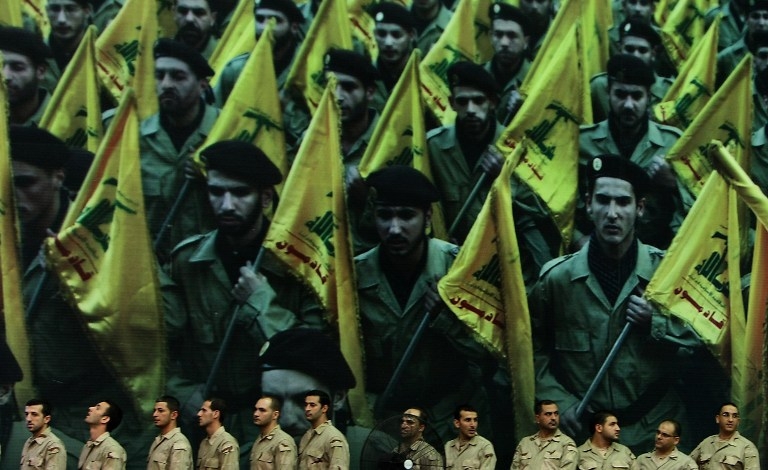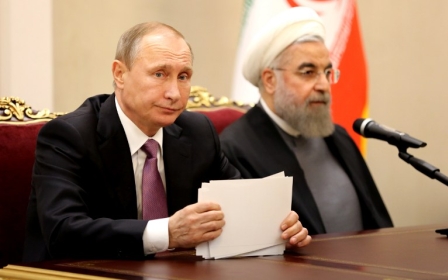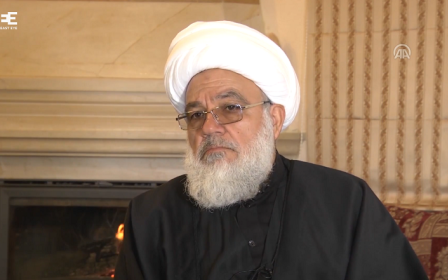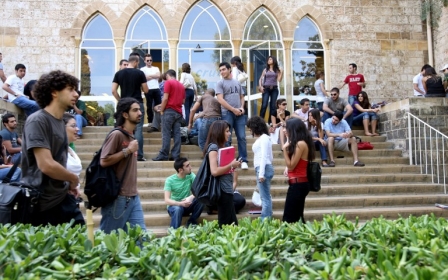Hezbollah, electoral reform and Pandora’s box

The Lebanese public last went to the polls to elect representatives to parliament in 2009. Those elections followed a deal reached by the Lebanese factions in Qatar, which put an end to the quasi-coup Hezbollah and their allies launched against the government of prime minister Fouad Siniora.
The Doha Accord, as it came to be known, rewarded Hezbollah and its allies for using their weapons against government forces who conceded defeat. Ultimately, Doha gave Hezbollah and its main Christian ally Michael Aoun, Lebanon’s current president, an electoral law which suited them.
The abysmal failure of the ruling class to elect a president for over two years forced the current parliament to extend its own term in office, which it did unconstitutionally. This will expire in June this year.
Consequently with only a few more months remaining, the different political factions are once more jostling to influence, or more precisely gerrymander, a new election law which will give them victory.
The fistfight has been over the formula to adopt in the voting process rather than the division of the districts which will remain almost identical.
As it stands, the majority of the Christian politicians, led by President Aoun’s bloc, are endorsing an ostensibly modern electoral law that brings in proportional voting (PR) over the current winner-takes-all system. The new law gives their side a clear advantage by preventing non-Christian parties from winning Christian seats as they have customarily done in the past.
In contrast, other parties, chief amongst them Druze leader Walid Jumblatt, have been vocal against PR, which ultimately disenfranchises minority parties and prevents them from catering to their constituency within the larger clientelist Lebanese system.
The most interesting part of this game, however, is the part played by Hezbollah. Closer examination reveals a more elaborate plot in the making.
Hezbollah backs PR
Hezbollah’s staunch endorsement of Aoun’s electoral reform is to be expected, given that their alliance is now into its 11th year.
Strangely, however, Hezbollah’s rejection of majoritarian law and its zealous support of Aoun’s proportional law appears to be against their own interests, given that any form of PR would reduce Hezbollah’s parliamentary bloc as well as that of its main Shia ally, the Amal Movement.
Has Hezbollah suddenly become altruistic? Their calculations are better understood as a piece of a bigger and wider long-term strategy as a Lebanese subsidiary of Iran.
Until 2005, when the Syrian exodus from Lebanon took place, Hezbollah’s direct involvement in the structure of Lebanese governance remained minimal and revolved around a small, inconsequential parliamentary bloc.
Having never recognised the Taif Accord, which ended the civil war, Hezbollah’s accommodation with the Lebanese state was largely the result of a regional settlement which gave the late Hafez al-Assad custody over Lebanon including Hezbollah.
This changed after the assassination of the then-prime minister Rafik Hariri, as Hezbollah had to step up to the plate, take part in the executive branch of government and become fully immersed in the trivialities of Lebanese politics.
Despite this tremendous shift, Hezbollah never endorsed, nor aspired to empower the Lebanese state, but rather remained focused on preserving its own parallel state structure which was primarily geared towards protecting the interests of the Iranian revolution.
Finishing off Taif
Consequently, its endorsement of PR, which weakens the grasp of the traditional political parties and their leaders, is actually an attempt to make the Lebanese state implode and to finally renounce the formula agreed at Taif. This aim is shared by Aoun.
Hezbollah has once and gain used the banner of empowering Christians as a pretext for further deepening the sectarian structure of government set by Taif. Another example is their blocking of the presidential elections over the past two years by boycotting the parliament sessions.
In the bigger picture, Hezbollah’s involvement in the Syrian civil war has exposed it domestically, further implicating it in the Iranian-Russian attempt to salvage what remains of Bashar Assad and his regime. The growing and now visible rift between Russia and Iran over Syria and its future has placed Hezbollah at a disadvantage, as the growing Russian influence in the region might with time erode their standing both locally and regionally.
While Russia has never shied away from using muscles to settle its disputes, its military involvement in Syria will sooner or later come to an end. When the time comes, Russia will reach out to the Sunni political actors in the area to seek a partner to settle the Syrian crisis. This scenario will certainly push Iran and Hezbollah against the ropes and will necessitate a pre-emptive auxiliary plan which involves them using Lebanon and its people as leverage to stay afloat in the international game of nations.
Hezbollah’s investment in a harmless election law which seemingly empowers progressive elements might appear tempting to some. But one has to be aware of the Pandora’s box this simple move might open.
Next time you hear any one of Hezbollah’s representatives praise or endorse any legislation or initiative to reform the Lebanese system, bear in mind that ultimately, if all this electoral manoeuvring and using democracy as a facade fails, Hezbollah can always fall back on what it does best and resort to using its arms to gets what it wants. This is the reality no ballot box can mask.
- Makram Rabah is a lecturer at the American University of Beirut, Department of History. He is the author of A Campus at War: Student Politics at the American University of Beirut, 1967-1975.
The views expressed in this article belong to the author and do not necessarily reflect the editorial policy of Middle East Eye.
Photo: Hezbollah supporters parade in Beirut (AFP)
This article is available on Middle East Eye French edition.
New MEE newsletter: Jerusalem Dispatch
Sign up to get the latest insights and analysis on Israel-Palestine, alongside Turkey Unpacked and other MEE newsletters
Middle East Eye delivers independent and unrivalled coverage and analysis of the Middle East, North Africa and beyond. To learn more about republishing this content and the associated fees, please fill out this form. More about MEE can be found here.





